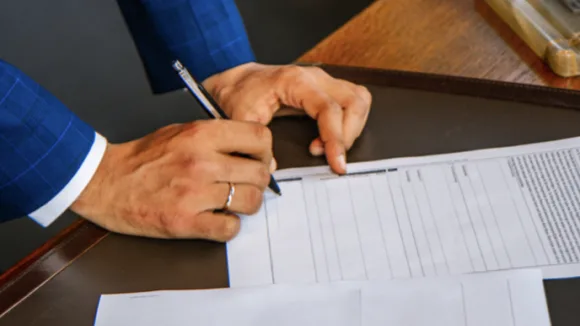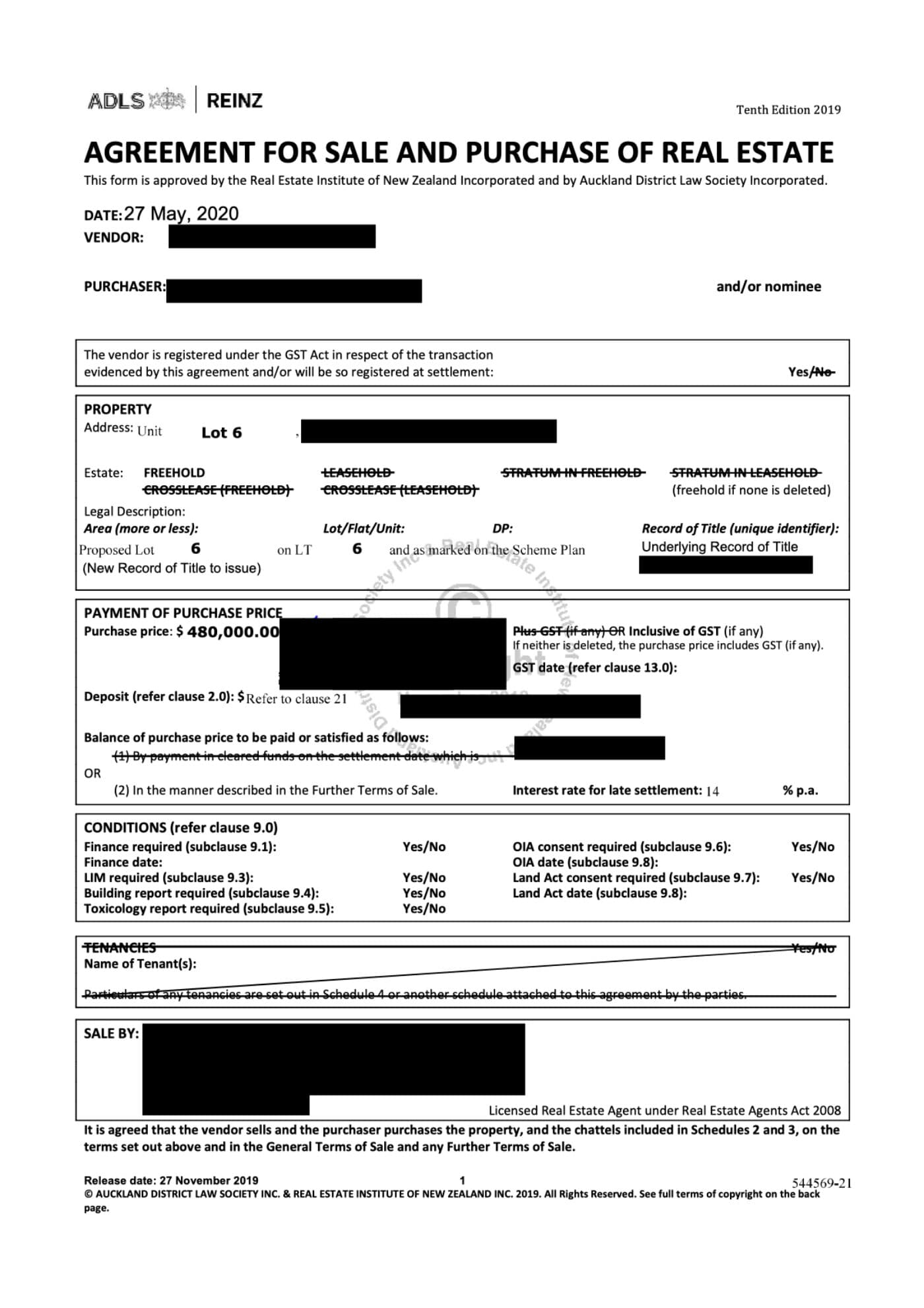
Property Investment
What happens in due diligence for an investment property?
This article shows you exactly what you need to do as a property investor during due diligence. This includes costs and a step by step guide of what to do.
Due Diligence
8 min read

Author: Ed McKnight
Resident Economist, with a GradDipEcon and over five years at Opes Partners, is a trusted contributor to NZ Property Investor, Informed Investor, Stuff, Business Desk, and OneRoof.
Reviewed by: Laine Moger
Journalist and Property Educator, holds a Bachelor of Communication (Honours) from Massey University.
The 10-day period of due diligence begins the day after both parties, the buyer and the vendor, sign the contract. But signing the contract is the very first step a potential investor takes when interested in purchasing a new-build property.
In this article, you’ll learn exactly what you need to know about signing a contract during due diligence.
The very first thing an investor should do when buying a new-build property is sign the contract.
In fact, it’s generally recommended that investors don’t spend too much time looking into a property until they’ve got it under contract.
That’s because, in this hot market, properties do not hang around for long and it’s likely that another investor might pip you to the post and get the property under contract before you.
After the property is under contract, investors can dive deeper and make sure the property stacks up during due diligence.
It’s also important to recognise that going through due diligence costs money. So you don’t want to spend money if you don’t know you have got the right to buy it at a price you are happy with.
Brittany White, of Opes Partners, says she understands it can be intimidating for first time investors to sign a document full of legal jargon, which could be 150 pages long.
The pressure is on to sign now, so it can scare people off taking the plunge.
But remember, a contract is there to protect you. It enables you to put a temporary hold on the house you want to buy, giving you first dibs to buy it if everything stacks up at the end of DD.
Remember, too, if you’re working with Opes Partners you’ll have a “right to cancel” clause in every contract. This is a safety net which allows you to pull out of purchasing at any time before going unconditional.

In property circles, a contract is also called a sale and purchase agreement and it is a legally binding contract between you, the buyer, and the seller.
You must sign a written sale and purchase agreement when you buy a property.
This outlines all the terms and conditions of the sale, including the price and any chattels being sold within the property.
It’s important to recognise you can still negotiate even while under contract. For instance, if working directly with a developer an investor might negotiate a slightly lower deposit during construction. This can be requested and negotiated even after the contract is signed.
It’s not until the property goes unconditional that both the vendor and the purchaser are locked into the sale.
The sale and purchase agreement becomes unconditional when the purchaser gives notice to their lawyer that all conditions have been satisfied and that the purchaser wants to confirm on the property.
There are many different ways to get a contract.
Firstly, if you’re working with a property investment company like Opes Partners, they’ll find you properties that suit your investment style. In that case, a contracts manager will organise and send the contract to you.
Alternatively, if you are working with a developer directly, they will have their own sales team, who will send you the contract.
Register for Opes+ where you can access the Ultimate Guide to Due diligence.
It’s broadly the same if you’re working with a real estate office. Whether you’re purchasing off the plans or an existing property, your real estate agent will draw up and supply you with a contract.
Usually all three of these contracts will use a standardised sales and purchase agreement, often from REINZ and the Auckland District Law Society (ADLS).
This means most of the contracts you sign will be similar.
Investors should always run a contract past a solicitor before signing it.
Here is what a standard contract looks like from the Auckland District Law Society.
The front page of the contract is the most important. It’s got the main clauses that you can choose to include or not.

It’s got the date of agreement, the buyer’s name, followed by “and/or nominee.”
The nominee line is always left open. This is so, when it comes to settlement, you can easily go to your lawyer and get the title changed to a trust or “look through” company. Do not cross this out.
It’s great to leave open because it gives you the freedom to get advice from your accountant about what structure you want to hold your property in.

The other area that is most important, especially if you’re working with Opes, is the Further Terms of Sale. This includes the clauses that protect you like the Due Diligence and Right to Cancel.
A buyer can sign a contract in person or electronically. Both are legally binding.
If you are working with a financial adviser, you’ll be introduced to an agent and they’ll send the doc electronically.
For example, at Opes Partners we use a system called Secured Signing. When you want to sign a contract, you will be sent a link from the contract’s manager. The online portal will show you where you need to sign to get the property under contract.
Additionally, Opes includes a one-page form of the Electronic Signing Act 2002, which states an electronically-signed contract is as legally binding as signing in person.
For those working with a real estate agent, you will usually sign it in person.
In a market where properties move quickly? Fast.
The moment you find a property you would like to buy, get the process underway as quickly as possible.
Because even if you have been sent and signed the contract, you don’t have the right to buy the property until the developer has received your signed version and signed the contract too. Lots of things can happen in the time it is travelling to the developer’s desk.
For example, if you and another buyer send two contracts to a developer and the other buyer gets in before you, the developer may sign the other contract before yours.
The contract becomes conditional on the date both parties sign the contract. This is called The Date of Acceptance.
The 10-day period of due diligence starts the next day.
Finally, at the end of the DD, the contract becomes unconditional once you, as the purchaser, tell your solicitor to confirm the contract.
It is now legally binding without conditions.
Once this happens, you can no longer get out of it unless there are things in the contract that have not been upheld.
Firstly, ask your contact to point out where the due diligence and right to cancel clauses are.
There are 4 clauses you should look for before you sign:
Brittany says she would check these clauses are not conflicting with the vendor’s further terms and conditions. For example, if the developer has tried to sneak in that Due Diligence is only 3 days.
Secondly, check the details on the front page of the contract are correct.
Especially take care to ensure the property on the purchase agreement is the same as the one you think you are buying. This is very important.
For example if, due to human error, the address on the contract is wrong, or the price is incorrect, or even if your name or trust is misspelt, you cannot change anything on the contract once it goes unconditional.

Any changes to the contract must be done via a deed of variation, which goes through the buyer’s and vendor’s lawyers. If both parties agree there is a mistake, both can sign a deed of variation to fix that in the contract. But that costs money.
It can get a bit sticky if the price is printed wrong. So double-check the dollar signs too.
These mistakes don’t often happen, but they’ll cause you a headache if they do appear. If there is an issue, the due diligence period will often reveal these errors.
Brittany says it’s also a good idea to check the sunset clauses and the chattels specifications. The sunset date gives the buyer a right to cancel in the event the build takes too long.
This could be due to something out of the builder’s control. But you should check that the sunset clause is for your benefit only and the developers can’t exercise it themselves.
Chattels are the parts of the house that can be picked up and walked away with.
They are also subject to depreciation, so these are things you will have spoken to your accountant about.
If you're looking to learn more about due diligence, check out these articles about: how to work with a solicitor during due diligence, how to work with an accountant during due diligence, how to get finance during due diligence, how to work with an insurance broker, and what to do on a site visit.
Resident Economist, with a GradDipEcon and over five years at Opes Partners, is a trusted contributor to NZ Property Investor, Informed Investor, Stuff, Business Desk, and OneRoof.
Ed, our Resident Economist, is equipped with a GradDipEcon, a GradCertStratMgmt, BMus, and over five years of experience as Opes Partners' economist. His expertise in economics has led him to contribute articles to reputable publications like NZ Property Investor, Informed Investor, OneRoof, Stuff, and Business Desk. You might have also seen him share his insights on television programs such as The Project and Breakfast.
This article is for your general information. It’s not financial advice. See here for details about our Financial Advice Provider Disclosure. So Opes isn’t telling you what to do with your own money.
We’ve made every effort to make sure the information is accurate. But we occasionally get the odd fact wrong. Make sure you do your own research or talk to a financial adviser before making any investment decisions.
You might like to use us or another financial adviser